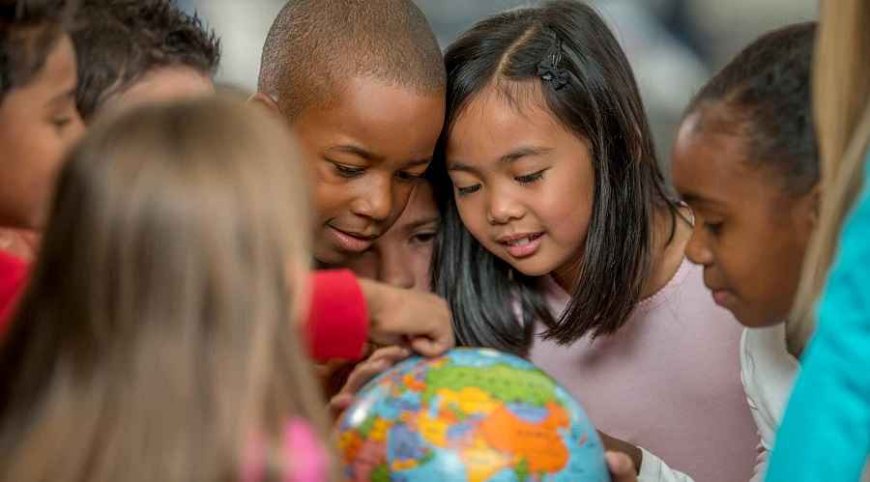In today's interconnected world, embracing diversity and promoting inclusivity has become more crucial than ever. Multicultural education, as an educational approach, serves as a powerful tool for fostering understanding, respect, and appreciation for diverse cultures, beliefs, and backgrounds. It goes beyond mere tolerance, aiming to create an inclusive learning environment where students develop cross-cultural competencies, critical thinking skills, and empathy. This article delves into the essence of multicultural education, its significance in contemporary society, and the benefits it offers to students and society as a whole.
Understanding Multicultural Education:
Multicultural education refers to an educational philosophy and practice that acknowledges and values the diverse cultural backgrounds, experiences, and perspectives of students. It seeks to provide equal opportunities and empower individuals from all cultural groups, including ethnic, racial, linguistic, religious, and socio-economic backgrounds. Rather than perpetuating a single dominant culture, multicultural education aims to create an inclusive curriculum that incorporates diverse perspectives, histories, contributions, and voices.
By integrating multicultural perspectives into the curriculum, educators encourage students to critically analyze social issues, challenge stereotypes, and develop a broader understanding of the world. Multicultural education goes beyond celebrating cultural festivals and holidays; it involves examining power dynamics, social justice issues, and the impact of privilege and oppression on marginalized communities.
Importance of Multicultural Education:
Multicultural education holds immense importance in contemporary society for several reasons. Firstly, it prepares students to thrive in a globalized world where cultural interactions are increasingly prevalent. In workplaces, communities, and academic settings, individuals with cultural competence are better equipped to collaborate effectively and appreciate diverse viewpoints, enhancing creativity and innovation.
Secondly, multicultural education promotes social cohesion and harmony by fostering empathy and reducing prejudice. When students are exposed to diverse perspectives and cultures, they develop a broader worldview and gain respect for others' experiences. This understanding helps break down stereotypes, biases, and discrimination, contributing to a more inclusive and just society.
Furthermore, multicultural education helps address educational inequities. It recognizes that students from different cultural backgrounds may face unique challenges and barriers to success. By incorporating culturally relevant pedagogies, materials, and teaching strategies, educators can bridge the achievement gap and create equitable learning environments that meet the needs of all students.
Benefits of Multicultural Education:
The benefits of multicultural education extend beyond the classroom walls. Firstly, it fosters cultural pride and identity development among students from diverse backgrounds. By validating their cultural heritage and experiences, multicultural education empowers students to embrace their identities and contribute positively to society.
Secondly, multicultural education enhances academic achievement. Research has shown that students who engage with diverse perspectives and experiences in the curriculum demonstrate improved critical thinking skills, academic motivation, and higher levels of achievement across various subjects.
Moreover, multicultural education nurtures cultural competence and prepares students to become responsible global citizens. It equips them with the knowledge, skills, and attitudes necessary to navigate diverse cultural settings, communicate effectively, and engage in respectful dialogue.
While multicultural education traditionally focuses on the recognition and inclusion of diverse racial, ethnic, and cultural backgrounds, it is essential to recognize that it extends beyond these dimensions. Multicultural education encompasses various aspects, including but not limited to gender identity, sexual orientation, abilities, and religious beliefs. By broadening the scope of multicultural education, we acknowledge and address the intersecting identities and experiences that shape individuals' lives.
Including gender, sexual orientation, and abilities within the framework of multicultural education promotes inclusivity and challenges societal norms and biases. It creates a safe and supportive environment for students to explore and express their identities authentically. By incorporating diverse perspectives related to these dimensions, educators can foster empathy, combat discrimination, and promote equality.
Additionally, religious diversity plays a significant role in multicultural education. Understanding and respecting different religious beliefs and practices contributes to a more inclusive and harmonious society. By learning about various religions, students gain insight into different cultural traditions, values, and worldviews. This knowledge helps dispel stereotypes and misconceptions, fostering religious tolerance and promoting interfaith dialogue.
By expanding the scope of multicultural education to encompass a wide range of identities and experiences, we create a more comprehensive and inclusive educational framework. This approach prepares students to navigate the complexities of a diverse world, fostering respect, empathy, and understanding across all dimensions of human diversity.
Multicultural education, with its emphasis on inclusivity, cultural understanding, and social justice, serves as a powerful tool for creating a more equitable and harmonious society. By recognizing and valuing the richness of diverse cultural, racial, ethnic, gender, sexual orientation, ability, and religious backgrounds, we can foster empathy, dismantle biases, and promote equality. Embracing multicultural education in all its dimensions prepares students to become active participants in a globalized world, where respect for diversity and collaboration are essential. Let us embrace the essence of multicultural education and work together to build a future that celebrates the vibrant tapestry of human experiences.

